|
As I sit and write this, I am enjoying the beginning of my fourth year away from teaching.
I gig when I feel like it, spend when I feel like it, practice when I feel like it, and continue to walk six miles a day. Lately, I’ve been helping my mom after she had emergency surgery and a stint in rehab. I believe all of this has been possible primarily because I adopted a proactive mindset decades ago. It’s permeated my gigging, teaching, financial, and personal choices, all for the better. My dad was my proactive role model. Typical proactive dad koan: BRH: Dad, how come your car is never dirty? Dad: Easy, son, I just don’t let it get dirty. No matter what your age, a proactive attitude makes a positive difference in a life and is one of the major tenets that I want my students to embrace as the aged. To me, being proactive involves knowing and doing the right thing, sometimes even a little bit sooner than later, without any prompts from others or rewards other than the self-satisfaction and benefits from being proactive. The first two stacking levels I previously mentioned are the foundation for a proactive mindset. Without accurate listening skills and self-discipline, proactive habits won’t be identified, developed, or thrive. The easiest way to think about a proactive approach is to think of its opposite: a reactive mindset. When we are primarily reactive, we find ourselves simply reacting to events and environments, we gain no momentum. We are at the command of the world around us. When we are proactive, we anticipate and actively work to positively approach events, consequences, and future fulfillment. Self-discipline is what turns occasional proactivity into a habit. Accurate listening and intuitive receptive language provide the necessary data to we require to anticipate what’s coming down the road. Proactive habits are a reward in themselves – our lives run more smoothly. But with children, we have to set up situations and artificial rewards to highlight a proactive mindset until they see the benefits. A proactive mindset shares three stages of development with leadership development: Transactional Personal Transformative When my students exhibited proactive behaviors, my initial rewards were things positive checks on the chalk board or guitar picks. I gave them out early and often in every class so a proactive pattern would become apparent to the kids. This relies on a transactional framework. While the student initially is focused on reacting, it creates the back and forth reciprocating pattern for the student to see the benefits of being proactive. My goal was for the transactional elements to fade and be replaced with a personal connection that relied on a relationship between the student and myself, where the student strove to exhibit self-prompted proactive actions that would gain my positive attention. That personal connection, in turn, would fade into a transformative mindset where the student realizes the real reward isn’t tethered to any other person’s observations, praise, or relationship: a proactive mindset is its own reward, specifically, an improved life experience. Developing a proactive mindset is not a lesson plan or something that can be assessed at the end of the first class. It takes time as well as repetition, monitoring, and revision. Building a proactive mindset in students is very similar to the techniques used to develop your self-discipline. It heavily hinges on continually providing visual feedback that's visual, provided at shifting time increments. I described being proactive to kids was if they could be a think like a magician who could read my mind. If they could read my mind and predict what I was going to say and then do something that I was going to have require them to do, and then do it without me saying a word, well that's pretty darn magical in my world. If, at the beginning of class, a child was sitting up straight, eyes forward, hands-folded in their lap, I might say something like “You were reading my mind, you knew I wanted you to look like that, you're being proactive!”, give them a guitar pick, put a plus on the board, and then ask the class to give them a round of applause. Anytime I went to the board to move the magnet back from stop time from go time to stop time and kids race back to their spot on the rug, I would reward them with either a guitar pick or a few pluses on the board because they were proactively reading my mind and doing what they knew I wanted them to do. I also made a big deal if someone made a “shhhhh”ing sound as I was approaching the board coming out of a break, letting the other kids know that I was about to move the magnet back to stop time. If kids raised their xylophone mallets high in the air before I said, “Sticks in the air.”, I would praise their proactive abilities. The trick is recognizing and praising the class’ proactivity more than highlighting their accurate following of directions. Proactivity needs to be constantly brought it to their attention, reminding them that they don't need a teacher to tell them what to do all the time, that they're smart enough and grown up enough that there are many things they can handle on their own. It is also important to teach when it is NOT proper or safe for them to be proactive. I would always temper that with: “Now, I don't want you to go home and proactively decide early on a Sunday morning to cook a pound of bacon on your stove top when you’re six like I did and almost burned down my house. The six-year-old-me figured I had carefully watched my mom cook bacon hundreds of times before, I knew how to follow directions, and most of all, I was hungry for bacon. Thankfully, the smell of the burning bacon woke up my father up-stairs. He ran down to the kitchen and put out the beginnings of a grease fire. Be proactive in the world of safety, don't venture into a situation where you think you can handle it but you know you should be there.” When kids were coming out of a break in chorus and immediately shifted to choral seated position, eyes forward, feet on the floor, and music open in their lap, ready to sing, they always got a positive proactive verbal reinforcer from me. Once kids know that this idea of proactivity has value to the teacher, they'll start to find little ways to show that it's important to them, too. Sometimes it's easy to miss kids’ proactivity so, as teachers, we have to be observant of the proactive kid and catch them being good as often as possible. The big, fun, proactive moment in our class was a visitor entered our music room. I told the kids the first week of school in music that if a visitor came into our room and they all stood as a sign of respect and smiled showing their teeth, and their teeth were clean (because the only smiles that count are the ones with teeth and clean teeth, at that) and not saying a single word. After the visitor left the room, the class would be rewarded with an 11 on the chalk board as well as a freeze pop party. All my classes loved this proactive application. They would pop up silently smiling every chance they we had a guest and came to realize that they enjoyed the visitor’s surprised admiration as much as the freeze pops. Kids would ask if they stood up in other rooms, would the freeze pop party deal worked in other rooms in the school and my answer was always “no, just in the music room, but feel free to stand as a sign of respect wherever you are if someone walks into the room. If you do, they will appreciate your sign of respect, and in turn, will respect you – because the easiest way to gain the respect of others is to do respectable things.” Teachers and parents would tell me stories of how their kids proactively stood up out of the blue in different social situations and the profound impact it had on the grown-ups in the room. My father was the one who trained me to stand when my grandmother entered the room. Same with carrying her groceries from the store to the car. Or helping her with her chair. He pointed out the smile and appreciation on her face every time that I proactively helped her. Years later, my car might not be as clean as dad’s was but his lessons in proactivity have ended up being one of the cornerstone in my personal and professional life. |
AuthorBoyd Holmes, the Writer Archives
June 2025
Categories |
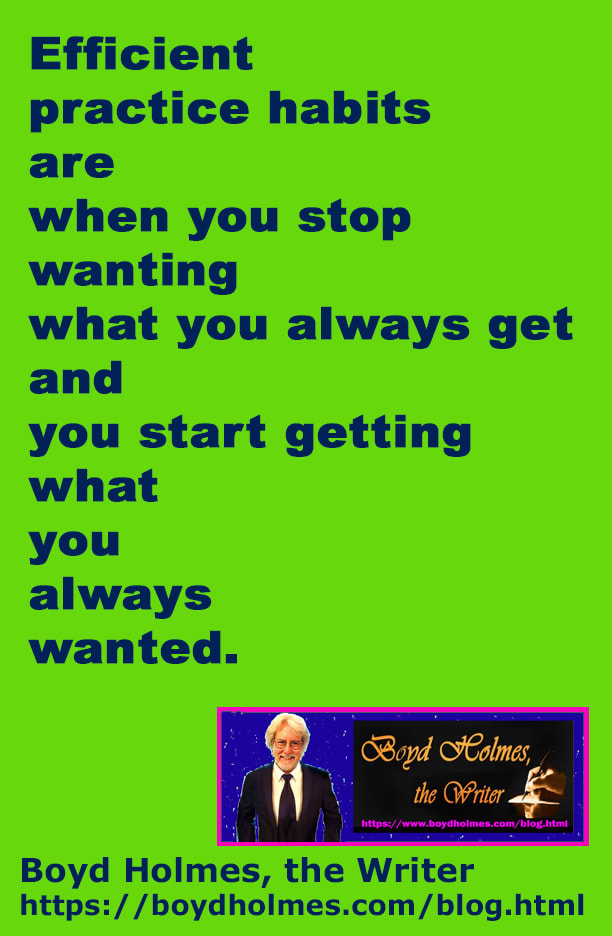
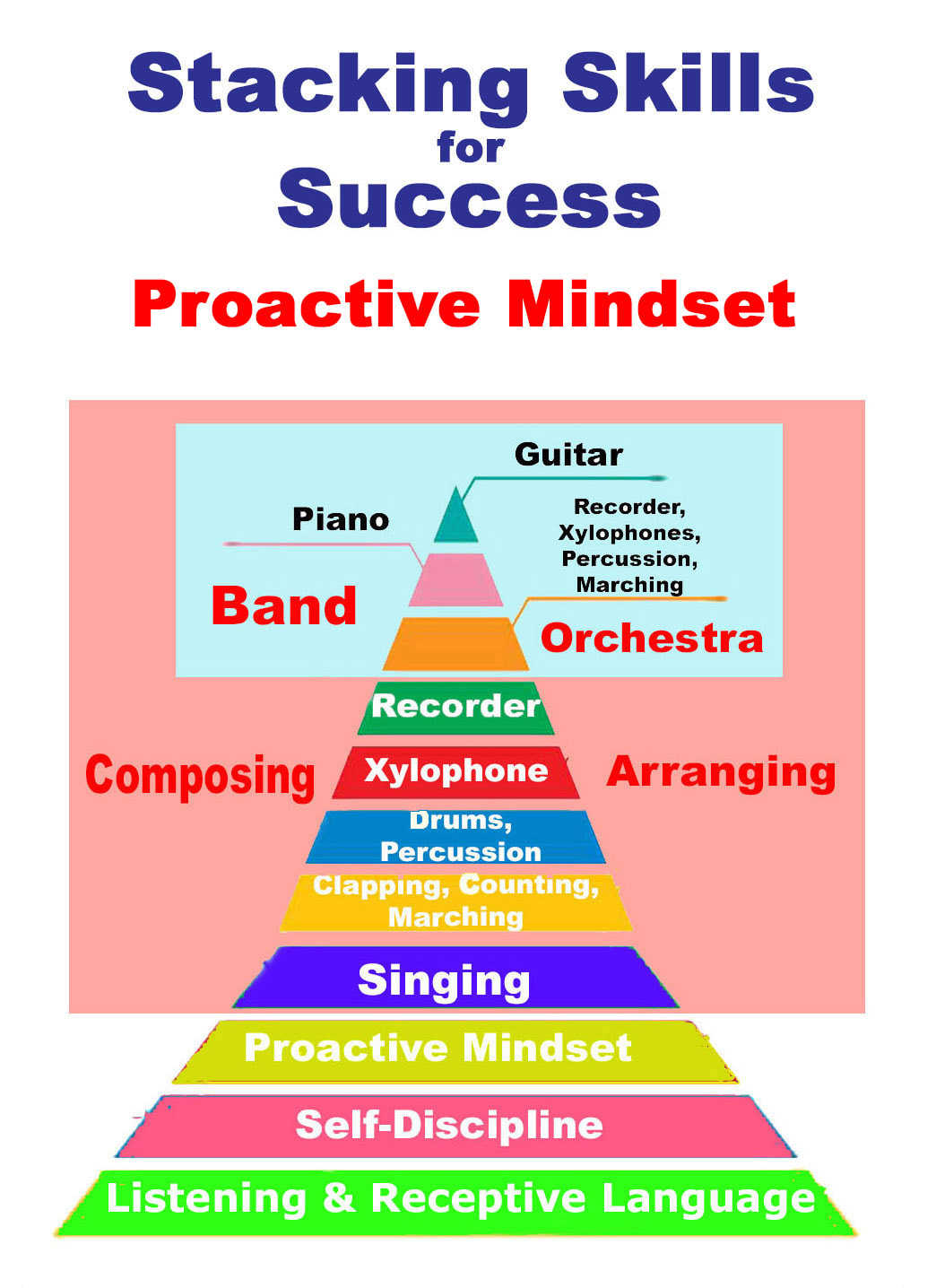
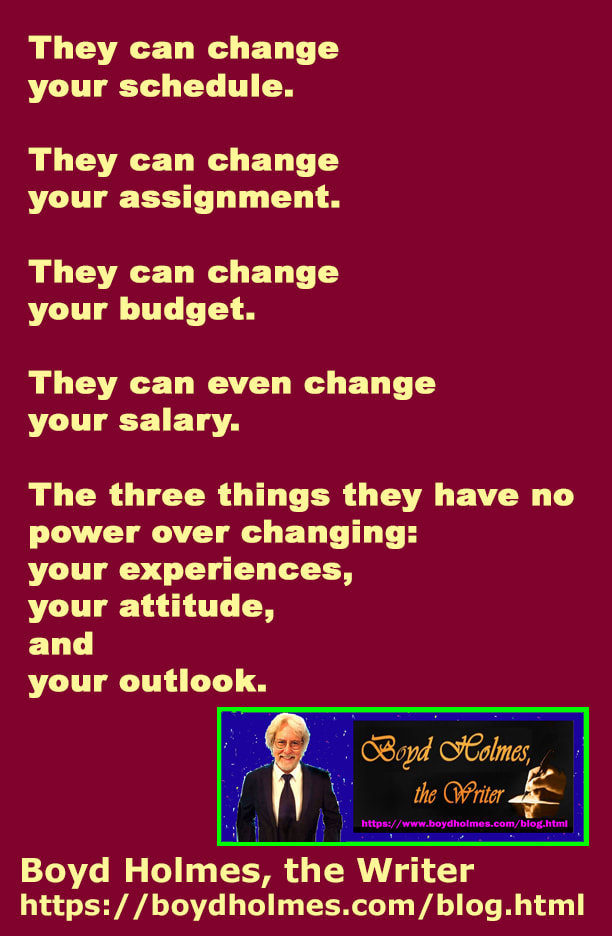
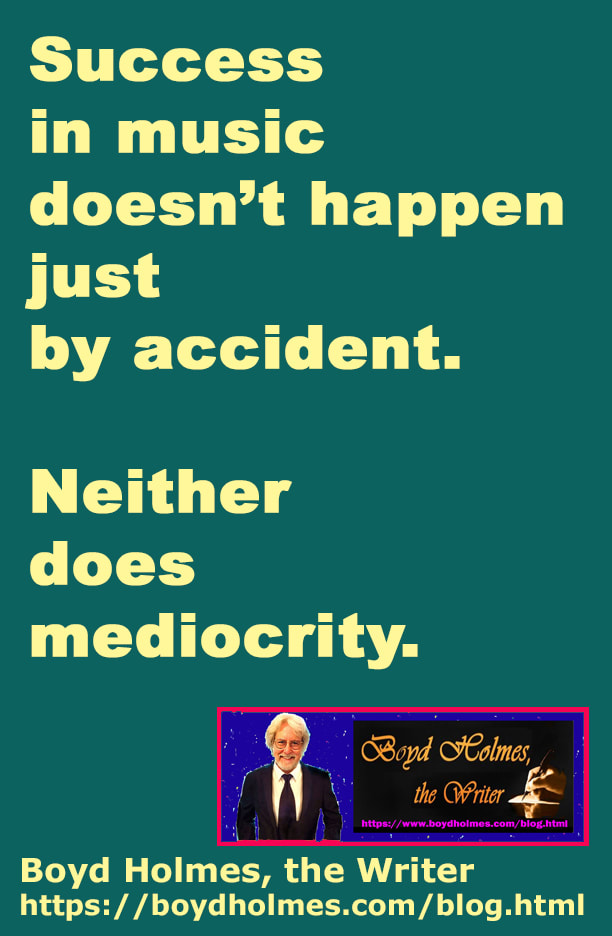
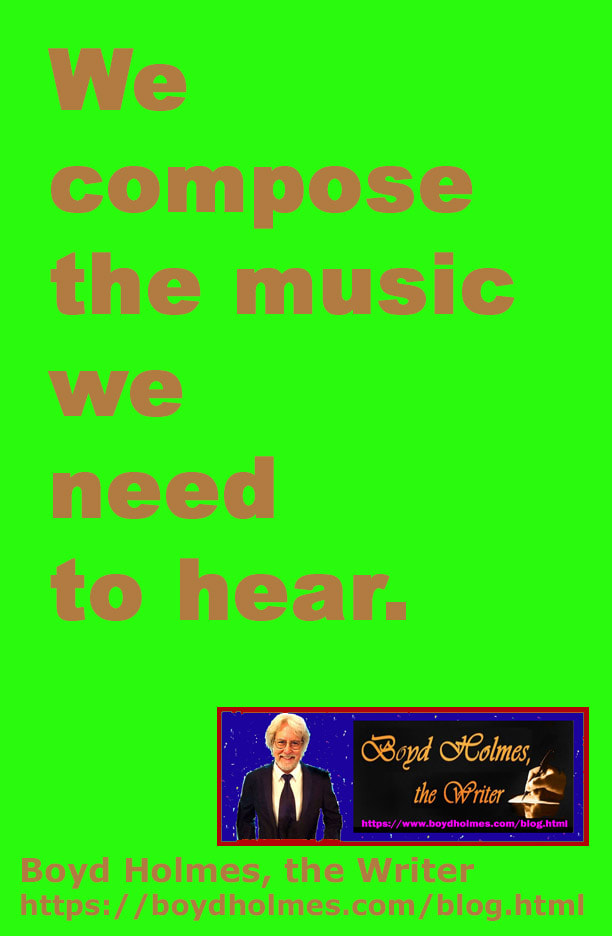
 RSS Feed
RSS Feed